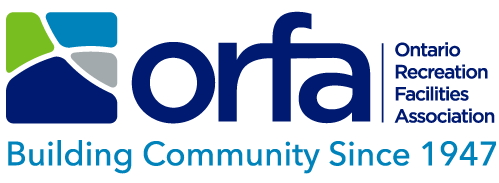- ORFA Home
- Resource Centre
- Technical Corner
- What We Learned and Forgot from the Pandemic
Technical Corner
What We Learned and Forgot from the Pandemic
February 2, 2023
Before the pandemic, recreation facilities lagged behind in adequate infection and prevention investment. The global health crisis highlighted the importance of these operational matters and a large number of resources were provided to assist all owners and managers of public facilities to be more proactive in this type of control. The invaluable lessons learned will help inform future generations of recreation practitioners on how to control and prevent the spread of infectious diseases.
The debate as to how effective vaccination, masking, and other efforts against COVID is ongoing but no-one will deny that the benefit of proper hand hygiene and masking in preventing the spread of traditional colds and flu illness is and was significant. The frequent and thorough washing of hands with soap and water, or the use of alcohol-based hand sanitizers when soap and water are not available, has been shown to be an effective way to reduce the transmission of infectious diseases that are transmitted through hand contact. Facility managers should continue to promote and encourage thorough hand washing by providing high quality soap and warm water as part of internal staff training. Many facilities further invested in faucets and paper towel dispensers that are touchless as part of pandemic control measures. The review of common area design to determine if investment in capital improvements was warranted was also an important exercise. [More]
The pandemic emphasized the importance of having robust infection control and prevention policies in place at all recreation facilities. This includes the development of contingency plans for dealing with outbreaks, clear guidelines for cleaning and disinfection of surfaces and objects, as well as identifying priority surfaces and areas in the event that there are shortages of cleaning personnel. Facility managers must develop policies that are regularly reviewed and updated. [More]
The pandemic also highlighted the importance of regular and effective cleaning and disinfecting surfaces and objects in order to reduce the risk of infection. This includes regularly and effectively cleaning high-touch surfaces that are frequently used by large numbers of people. Proper cleaning and disinfection will remove visible dirt and debris, as well as kill germs and bacteria that may be present on surfaces and objects. [More] Proactive managers can now accurately identify which surfaces are high-touch and objectively measure cleaning performance to ensure it is done effectively. [More]
Another lesson learned was the importance of effective communication and collaboration in the response to infectious diseases. This includes working closely with organizations like the ORFA, local, provincial, and national health agencies in order to effectively coordinate efforts and share information. Finally, facility managers should keep in mind that infection control and prevention go beyond pathogens such as that which caused COVID-19 to include reducing occupant exposure to mold spores or legionella from improperly maintained cooling systems, listeria from stagnant drinking water, e-coli and salmonella from food preparation surfaces and equipment, pest droppings from rodents, soil and dust contaminated with bacteria and other compounds that can harm occupant health, and more.
Overall, the COVID-19 pandemic has served as a reminder of the importance of infection control and prevention in protecting occupant health, along with the fact that the cleaning industry has the products and know-how to keep buildings clean, healthy, and productive when given the time, resources, policies and plans to assist facility management with these goals. What must not occur is a slipping back to the way business was conducted before the pandemic occurred. ORFA members share that regrettably, the same level of support by senior management has already began to be reduced. Creating a business case for the necessary resources takes skill and training. [More]
The ORFA Recreation Facility Cleaning, Disinfection and Sanitizing Principles online self-study course is available as the first step in making this goal a reality. Our future rests with the investment of current recreation practitioners.
Comments and/or Questions may be directed to Terry Piche, CRFP, CIT and Director, Training and Research Development, Ontario Recreation Facilities Association
|
Note: The publisher, (Author(s)/General Editor(s)/Licensor(s)) and every person involved in the creation of this communication shall not be liable for any loss, injury, claim, liability or damage of any kind resulting from the use of or reliance on any information or material contained in this communication. While every effort has been made to ensure the accuracy of the contents of this communication, it is intended for information purposes only. When creating this communication, none of the publisher, the (Author(s)/General Editor(s)/Licensor(s)) or contributors were engaged in rendering legal or other professional advice. This communication should not be considered or relied upon as if it were such advice. If legal advice or expert assistance is required, the services of a competent professional should be sought and retained. The publisher and every person involved in the creation of this communication disclaim all liability in respect of the results of the any actions taken in reliance upon information contained in this communication and for any errors or omissions in the works. They expressly disclaim liability to any user of the work. |
